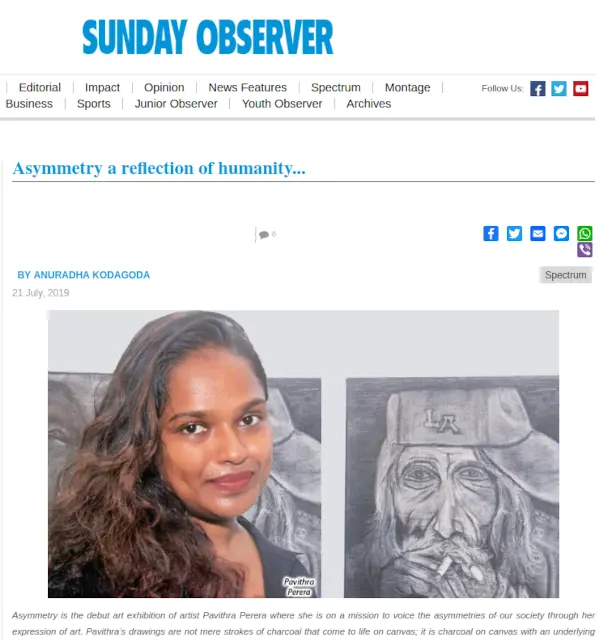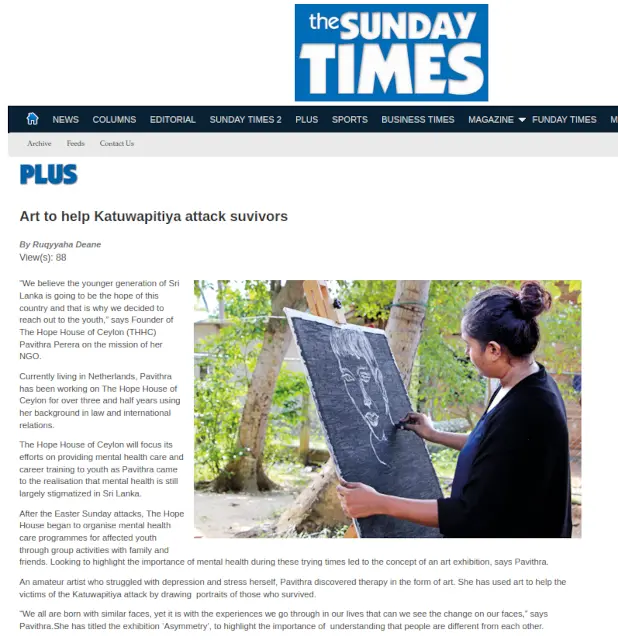



The Hope House of Ceylon is a non-government entity planning to operate in northern Sri Lanka as a local human rights constituency. The aim is to support the implementation of mental healthcare and education pursuant to Articles 12,14 and 15 of the International Covenant on Economic Social and Cultural Rights (ICESCR), a UN human rights treaty body that Sri Lanka is party to since 1980.
A decade after declaring the end of a civil war that cost Sri Lanka a devastating amount of lives, oppressed communities are still not being ensured mental health care, proper education, necessary safety, the return of their lands, gainful employment, disability access and much more.
Sri Lanka's country report on the Millenium Development Goals (MDGs) depicts the immense progress in the health sector regarding physical health, specifically in the area of child mortality and maternal health. However, the MDGs are not reflective of mental health and if they were, the portrayed reflection would not be similarly uplifting.
It goes without saying that over 30 years of civil war will leave a heavy burden on the soul of any country. In the case of Sri Lanka, the heavy burden manifested itself in the form of PTSD, social anxiety, panic attacks, OCD and further mental healthcare issues that plague the population in general, but more severely the population of northern Sri Lanka, where most of the fighting took place.
The issue of mental health undoubtedly needs to be addressed more openly, but instead faces a heavy cultural stigma, making it harder for the affected people to seek help from healthcare professionals. The stigma is deeply rooted in tradition and religion, where mental illness is often connotated as being the result of bad karma. This then leads to the practice that people who are suffering from mental health issues will not seek help, but rather try to suppress said issues. In regions where there are no mental health care facilities, the burden of caring for the sick people subsequently falls upon the families who, in most cases, do not have any medical training and who will also fall victim to the stigmatisation exercised by the society surrounding them. The stigma can be so dehumanising that it causes families to shield members with mental illnesses from society completely, causing families to fall apart.
Many young children work as labourers to keep their families fed since many men of the community lost their lives to the war. The education system has suffered immensely to a point that it can be considered as completely disrupted by the war and its after-effects.
Decades of civil war, political corruption and amassed foreign debt have given rise to a vicious cycle of problems in the country now.
Depression, post traumatic stress, disease and many other mental health problems in a war-terrored north has crippled the youth.
Inadequate education and a high level of poverty have led the younger generation into mass unemployment. The educated few are often subject to a so called "brain drain", meaning that they seek to leave the country for better paid jobs after being educated in Sri Lanka, in hopes of a safer and more affluent lifestyle abroad.
Buried in debt, Sri Lanka's economy is not producing enough jobs or attracting enough foreign investments to even employ university graduates that are coming out of government institutions. This is after 15 to 17 years of formal education without any career or communication skills due to an existing education system which is in desperate need of restructuring.



